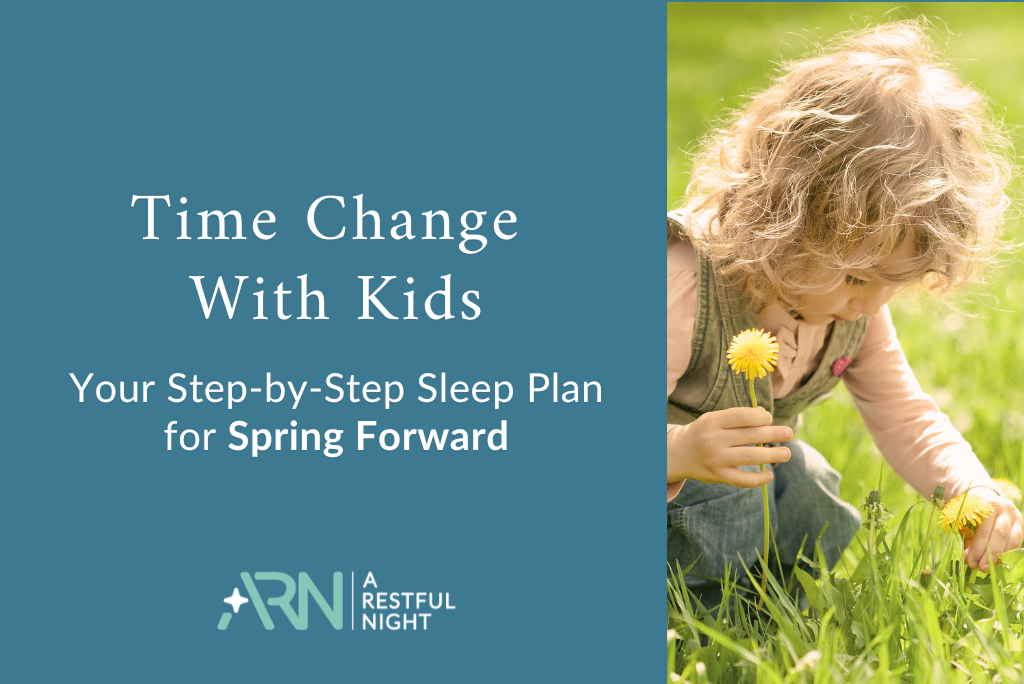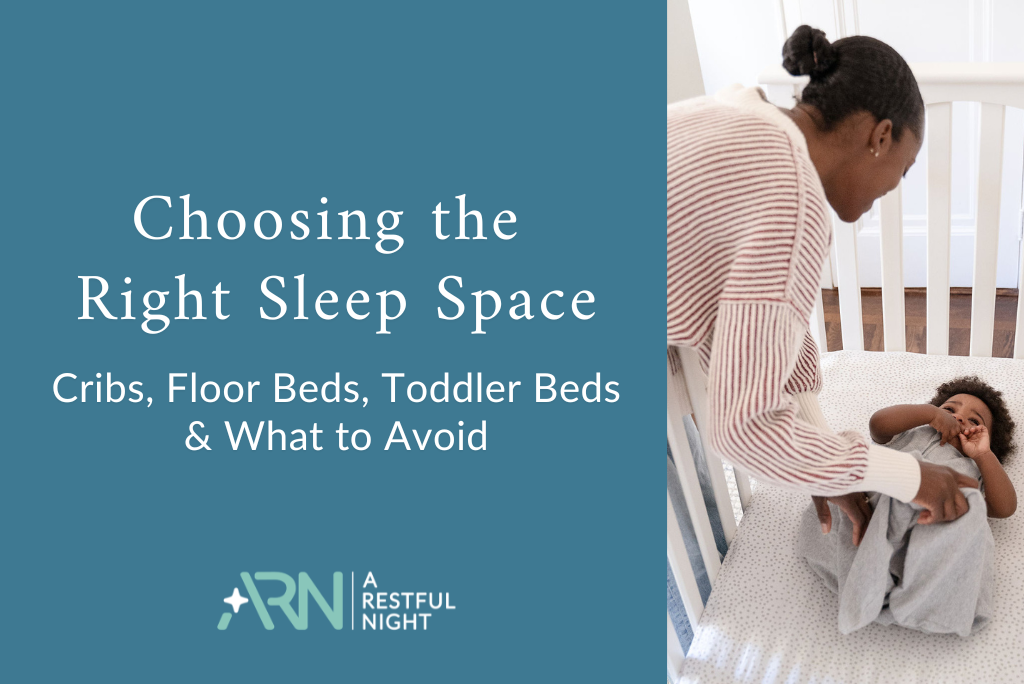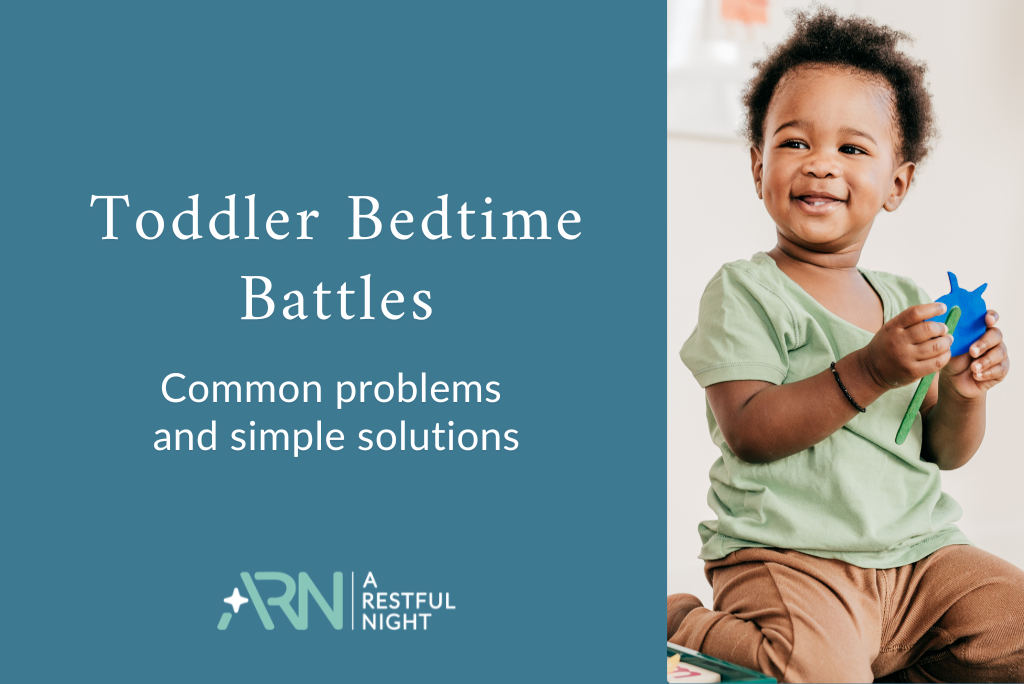4 Month Sleep Regression: Why It Happens and How to Handle It
Just when you thought you'd figured out your baby's sleep patterns, everything changes. Your little one who was starting to sleep in longer stretches is suddenly waking every hour or two. Naps are a battle, often short and chaotic. If this sounds familiar, you're likely experiencing the infamous 4-month sleep regression.
Here's the thing: this phase catches many parents off guard. You've made it through the newborn fog, and just as you're finding your rhythm, sleep becomes challenging again. But there's good news: the 4-month sleep regression is actually a sign of healthy development, and with the right approach, you can help your baby navigate this transition successfully.
Let's dive into what's really happening during this period and how you can support your little one through it.
What is a Sleep Regression?
A sleep regression is when a baby or toddler who has been sleeping relatively well suddenly starts experiencing disrupted sleep patterns. This can look like more frequent night wakings, shorter naps, difficulty falling asleep, or resisting bedtime altogether.
These phases can feel frustrating - like you're taking a step backward just when things were improving. But here's what's important to understand: sleep regressions are typically linked to developmental milestones, growth spurts, or significant changes in how your baby's brain and body are developing.
The 4-month sleep regression is often the first major sleep disruption parents encounter, and it's one of the most significant because it represents a permanent shift in how your baby sleeps.
Why Do Sleep Regressions Happen?
Sleep regressions happen because your baby's brain is working overtime, learning new skills and growing fast. During these periods, developmental leaps can temporarily disrupt sleep as your little one processes all the changes happening in their body and mind.
Common causes of sleep regressions include:
Developmental milestones like rolling over, crawling, or walking can make it harder for babies to settle down and sleep.
Brain development and maturation as sleep cycles become more complex and adult-like.
Growth spurts that may increase hunger and discomfort.
Teething pain from those tiny teeth pushing through.
Separation awareness as babies become more aware of their surroundings and their attachment to caregivers.
Routine disruptions from travel, illness, or changes in schedule.
The 4-month sleep regression, however, is unique. Unlike other regressions that may be triggered by temporary factors, this one represents a fundamental change in how your baby sleeps - and it's actually a progression, not a regression at all.
TIP: If you’re in the middle of the 4 Month Regression and want to know which future regressions to expect, read our blog on the 6 Major Sleep Regressions
What Makes the 4 Month Sleep Regression Different?
The 4-month sleep regression is actually a permanent change in your baby's sleep architecture. Despite its name, this "regression" can happen anytime between 3 and 5 months - think of four months as more of an average. It's not like your baby hits the four-month mark and boom, everything falls apart overnight.
Many parents reach out for sleep support during this phase because what once felt manageable in the newborn stage now feels completely unsustainable. The constant wake-ups, the struggle to get your baby back to sleep, the exhaustion that comes from being up multiple times a night - it all starts to take a real toll on the whole family.
Understanding the Sleep Cycle Change
Newborn sleep is relatively simple. Babies spend most of their time in just two states: active sleep or very deep sleep. But around 3-5 months, something remarkable happens - your baby's sleep patterns start to mature and resemble adult sleep cycles.
This means your little one is now moving through different stages of sleep, including lighter stages where they're more likely to rouse or wake up. These lighter sleep stages are completely normal and healthy - they're a sign your baby's brain is developing exactly as it should - but they create more opportunities for waking throughout the night.
Think of it this way: as adults, we briefly wake or surface between sleep cycles throughout the night. We just don't realize it because we know how to roll over, adjust our position, and fall back asleep on our own. But if you relied on someone rocking you or feeding you to fall asleep initially, you'd probably need that same help each time you surfaced between cycles.
That's exactly what's happening with your baby.
The Skills Gap
When babies enter this new sleep phase without independent sleep skills - the ability to fall asleep and resettle on their own - they struggle. If your baby needs to be rocked, fed, or helped with a pacifier to fall asleep at bedtime, they're going to need that same support every single time they wake during the night.
This creates a challenging and exhausting cycle: your baby wakes frequently overnight, so they may feed more at night than during the day. Then, because they've been eating all night long, they're not as hungry and less interested in feeding during the day. This can leave parents confused and exhausted, unsure how to break the pattern or what their baby really needs.
Signs of the 4 Month Sleep Regression
Wondering if what you're experiencing is actually the 4-month sleep regression? Here are the telltale signs to look for:
Frequent night wakings: Your baby who was starting to sleep longer stretches (maybe even 4-6 hours at a time) is now waking every hour, every 90 minutes, or every 2 hours throughout the night.
Shorter naps: Naps that used to be 1-2 hours are suddenly only 30-45 minutes, or your baby fights naps altogether.
Difficulty falling asleep: What used to work to get your baby to sleep doesn't seem to work anymore, or takes much longer than it used to.
Increased fussiness and crankiness: Your little one seems more irritable than usual, especially around sleep times, often because they're overtired from all the disrupted sleep.
More alert and aware: You might notice your baby is more interested in their surroundings, easily distracted during feeds, and generally more "awake" to the world around them.
Changes in feeding patterns: They may want to eat more frequently at night and show less interest in daytime feeds.
Difficulty settling: Your baby may seem restless in their sleep, tossing and turning, or practicing new skills like rolling over in the crib.
If these behaviors appear suddenly and your baby was previously sleeping reasonably well, you're likely in the thick of the 4-month sleep regression.
What to Expect from the 4 Month Sleep Regression
The 4-month sleep regression typically lasts anywhere from 2-6 weeks as your baby adjusts to their new sleep cycles. However, here's the critical thing to understand: while the adjustment period is temporary, the change in sleep cycles is permanent. Your baby's sleep has matured, and they won't go back to those simple newborn sleep patterns.
This is an important distinction. Other sleep regressions - like the ones at 8 months, 12 months, or 18 months - are often temporary disruptions caused by developmental milestones or separation anxiety. Once your baby masters the new skill or moves past the phase, sleep often returns to baseline.
But the 4-month sleep regression is different. Because it represents a fundamental shift in sleep architecture, if you don't address the underlying skills gap - teaching your baby to fall asleep independently - the sleep challenges may continue well beyond the regression period. Many parents find themselves still dealing with frequent night wakings months later, sometimes even into toddlerhood, because their baby never learned to self-soothe through sleep cycles.
During this regression, you can expect:
Night wakings every 1-3 hours as your baby surfaces between sleep cycles and needs help transitioning back to sleep.
Nap resistance or short naps as your baby becomes more aware and fights sleep, or can't connect sleep cycles during the day.
Increased need for support with your baby seeming to need more rocking, feeding, or pacifier help than before.
Daytime fussiness from accumulated sleep debt when nighttime sleep is fragmented.
Feeding confusion with schedules getting disrupted as night and day feeds blur together.
The good news? When you take steps to teach independent sleep skills during this regression, you're not just surviving a temporary phase - you're setting up healthy sleep habits that will benefit your whole family for months and years to come.
How to Manage the 4 Month Sleep Regression
The 4-month sleep regression doesn't have to derail your family's sleep indefinitely. Here are practical, gentle strategies to help you and your baby through this transition.
Establish a Consistent Bedtime Routine
If you haven't already, now is the perfect time to create a predictable bedtime routine. A consistent sequence of calming activities - like a warm bath, gentle massage, storytime, and a lullaby - helps signal to your baby's brain and body that sleep is coming.
Keep it simple and sustainable. Choose activities you can realistically do every single night, even when you're exhausted, traveling, or having a rough day. The predictability provides security and comfort for your baby and helps their body prepare for sleep. Aim for a routine that takes about 20-30 minutes from start to finish, including a full feed before bed.
Create a Sleep-Friendly Environment
Your baby's sleep space can make a real difference during this regression. Focus on these key elements:
Darkness: Use blackout curtains or shades to keep the room dark for naps and nighttime sleep. Darkness helps stimulate melatonin production, the hormone that promotes sleep.
White noise: A consistent sound machine is non-negotiable during sleep regressions! White noise can drown out household sounds, create a consistent auditory environment, and help your baby stay asleep through lighter sleep cycles. Whether you're dealing with noisy siblings, traffic sounds, or just the general hum of daily life, white noise creates a buffer that helps your baby sleep more soundly.
Comfortable temperature: Keep the room between 68-72°F to avoid your baby waking due to being too hot or cold.
Safe sleep space: Continue following safe sleep guidelines with your baby on their back in a clear crib, bassinet, or pack-and-play with no pillows, blankets, or loose items for babies under 12 months.
Looking for more sleep-space tips? Read our blog: Creating the Perfect Sleep Space
Watch for Sleep Cues and Prevent Overtiredness
An overtired baby has a much harder time falling asleep and staying asleep. During the 4-month regression, managing wake windows becomes especially important because disrupted nighttime sleep can leave your baby starting the day already tired.
Look for early sleep cues before your baby becomes overtired:
Yawning
Rubbing eyes or ears
Staring off into space or losing focus
Decreased activity or becoming quieter
Fussiness or whining
Red eyebrows or eyes
At this age, most babies can handle wake windows of about 1.5-2 hours before they need to sleep again. Try to put your baby down for a nap or bedtime before they reach the overtired stage, when falling asleep becomes much more difficult.
Sometimes, an earlier bedtime during regression phases can help your baby catch up on lost sleep and break the overtired cycle. If your baby is waking frequently at night and taking short naps, moving bedtime up by 30-60 minutes can make a surprising difference.
Establish a Structured Daily Rhythm
Many babies at this age are actually craving more structure and predictability in their days. A general routine helps regulate their body clock and makes sleep more predictable for everyone.
This doesn't mean you need a rigid schedule down to the minute - that can be stressful and often unrealistic. But aiming for consistent wake times, feeding times, and nap times helps your baby's body know what to expect.
A typical daily rhythm might look like:
Consistent morning wake time (within a 30-minute window)
Feeding upon waking
Active play and engagement time
Watch for sleep cues before the next nap (about 90 to 120 minute wake time between naos)
Repeat throughout the day
Consistent bedtime routine starting at the same time each evening
Bedtime within the same window each night (usually between 6:30pm and 8:30pm)
Consider Teaching Independent Sleep Skills
This is where many families see the biggest, most lasting improvement. Teaching your baby to fall asleep independently - also known as sleep training - gives them the tools they need to navigate these new sleep cycles on their own.
Now, if you're thinking "sleep training means cry it out," take a breath. There are many approaches to teaching independent sleep skills.
When we work with babies at 3, 4, or 5 months old, we're looking at the whole picture, not just one piece: How is your baby feeding during the day? What does their daily schedule and wake windows look like? Are they using a pacifier as a sleep association? Is their room environment set up properly for sleep? Do they have the right bedtime? All of these pieces work together to support healthy sleep.
The goal is to help your baby learn that they can fall asleep at the beginning of the night on their own - without being rocked to sleep, fed to sleep, or helped with a pacifier - and that means they'll also have the ability to put themselves back to sleep during those brief wakings or transitions overnight.
There are lots of hands-on methods you can use to gradually teach these skills.. The right method for your family depends on your parenting style, your baby's temperament, and what feels sustainable for you.
Manage Nighttime Wakings Thoughtfully
When your baby wakes at night during this regression, pause for just a moment before rushing in. Sometimes babies make noise or fuss briefly as they transition between sleep cycles but can actually resettle on their own if given a minute or two.
This doesn't mean letting your baby cry for long periods - it just means observing and waiting a beat to see if they're truly awake and need you, or if they're just stirring between cycles.
If your baby truly needs you, think about how you can offer comfort while also encouraging emerging independence. You might try:
Gentle shushing and patting without picking them up right away
A reassuring hand on their chest or back
Soft verbal reassurance from beside the crib
Gradually reducing how much help you provide over time
Offer a feed and put them in the crib awake afterwards
The key is finding the balance between offering the comfort and support your baby needs while not creating new sleep associations that will be hard to break later. If you're currently rocking or feeding your baby fully back to sleep at every waking, your baby isn't learning that they have the ability to fall back asleep on their own.
Be Mindful of Feeding Patterns
If your baby is eating frequently overnight - especially every hour or two - they may not be hungry for their daytime feeds. This creates a challenging cycle, known as reverse cycling, e where nighttime calories gradually replace daytime calories, and your baby comes to genuinely expect and need those night feeds.
Work on encouraging full, focused feeds during the day. This might mean:
Feeding in a quiet, low-distraction environment so your baby takes full feeds
Offering feeds when your baby first wakes from sleep rather than right before sleep
Ensuring adequate time between feeds so your baby is actually hungry (usually 2.5-3 hours at this age)
Gradually reducing nighttime feed amounts or frequency if appropriate for your baby's age and weight
Always consult with your pediatrician before making significant changes to your baby's feeding schedule, especially if your baby was born prematurely or has weight gain concerns.
Stay Patient and Practice Self-Care
Sleep regressions are tough on everyone, and the 4-month regression can be especially challenging because it often lasts longer than other regressions. Remember that your baby is going through massive developmental changes - their brain and body are working overtime to master these new sleep cycles.
While you're supporting your baby through this transition, don't forget to care for yourself too. Sleep deprivation is real, and it affects your mental health, patience, and ability to parent effectively. Here's how to take care of yourself:
Lean on your partner, family, or friends when possible
Take turns with night wakings if you can
Rest when your baby rests, even if that means other things don't get done
Lower your expectations for what "productive" looks like right now
Reach out for support if you're feeling overwhelmed
This is hard work, and you're doing a great job just by showing up and trying to help your baby.
When to Seek Professional Help
If you're struggling through the 4-month sleep regression, you're not alone. This is actually one of the most common times parents reach out for sleep support, and for good reason - the constant wake-ups become unsustainable, especially when you realize that without intervention, they may continue indefinitely.
Consider reaching out to a us if:
Sleep problems persist beyond 2-3 weeks: If you're still dealing with hourly wakings well after the typical regression timeline, it may be time to get personalized support.
You've tried various strategies without improvement: Sometimes you need an expert set of eyes to look at your baby's full picture and identify what might be missing.
Your baby seems excessively distressed: If your baby appears uncomfortable, inconsolable, or is showing signs that something beyond the regression might be at play, professional guidance can help.
The lack of sleep is affecting your mental health or family functioning: When sleep deprivation starts impacting your ability to function, your relationship with your partner, or your mental wellbeing, it's time to get help. You don't have to suffer through this alone.
You want personalized guidance for your specific situation: Every baby is different, and what works for one family may not work for yours. A sleep consultant can look at your baby's schedule, feeding patterns, sleep environment, and current habits to create a customized plan.
You're ready to teach independent sleep skills but don't know where to start: Sleep training can feel overwhelming, and having support through the process makes a huge difference.
We offer complimentary consultation calls to help you understand your options and select the sleep support that fits your family best. During these calls, we'll talk through what you're experiencing and help you determine the right path forward - whether that's our Two-Week Full Support Program or another approach that works for your family.
Final Thoughts
The 4-month sleep regression can feel overwhelming when you're in the thick of it. The exhaustion is real, the confusion is valid, and the frustration is completely understandable. But remember: this regression is actually a progression - a sign that your baby's brain and sleep patterns are developing exactly as they should.
Your baby's sleep is maturing from simple newborn patterns to more complex adult-like cycles. This is healthy, normal, and permanent. The challenge is that they now need new skills to navigate these cycles successfully, and without those skills, the wake-ups may continue long after the initial regression period ends.
The truth is, sleep regressions tend to hit harder and last longer for babies who haven't yet developed independent sleep skills. If your little one relies on rocking, feeding, or being held to fall asleep, a regression can throw everything off track and create patterns that are difficult to change later.
Meg O'Leary is an Infant and Child Sleep Expert and the founder of A Restful Night. Based in Westchester County, NY, she leads a team of certified sleep coaches to provide virtual support to families across the US and around the world.






